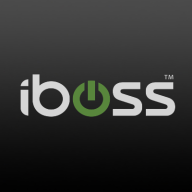


Microsoft Defender for Cloud Apps and Symantec CloudSOC CASB are competing products in the field of cloud security. Microsoft Defender for Cloud Apps often receives more favorable feedback regarding pricing and support, while Symantec CloudSOC CASB is noted for its superior feature set, which many find worth the price.
Features: Microsoft Defender for Cloud Apps offers robust integration with Microsoft's ecosystem, providing powerful data protection and seamless threat detection. It excels in monitoring cloud security posture, unifying reporting structures, and integrating with third-party applications. Symantec CloudSOC CASB provides comprehensive visibility into cloud applications, including granular control and advanced threat detection. Its strong security management and feature-rich environment allow for precise policy implementation, differentiating it from others.
Room for Improvement: Microsoft Defender for Cloud Apps could enhance its deployment efficiency in cross-platform settings and offer better reporting customization. It might also benefit from streamlined integration processes with non-Microsoft environments. While Symantec CloudSOC CASB offers excellent features, users have indicated a need for more intuitive interfaces. Additional improvements could include simplified integration with various cloud services and reduced complexity in policy management.
Ease of Deployment and Customer Service: Symantec CloudSOC CASB is recognized for straightforward deployment and robust customer service, offering an edge in service quality. Microsoft Defender for Cloud Apps boasts seamless integration within Microsoft's environment, though cross-platform deployment may demand more effort.
Pricing and ROI: Microsoft Defender for Cloud Apps is seen as cost-effective, providing good ROI through integration within the Microsoft stack, and generally lower setup costs. Symantec CloudSOC CASB, despite potentially higher initial expenses, justifies these with its comprehensive feature set and focus on security management, making it valuable for those prioritizing rich security capabilities.


iboss offers a comprehensive security platform designed for diverse use cases such as web filtering, data loss protection, corporate proxy services, and URL filtering.
iboss integrates advanced features to address dynamic security needs, leveraging its strength in SASE, ZTNA, AI initiatives, and cloud integration, while ensuring seamless operations for remote work. It excels in historical forensics, malware protection, and flexible cloud deployments. Users benefit from comprehensive traffic scanning, robust malware detection, and PaaS capabilities that reduce hardware management. An intuitive admin console ensures efficient management with content filtering and low false positives. SSL decryption enhances security, while DLP protects data in AI conversations. Deployment is rapid and scalable, allowing effortless integration with emerging technologies.
What features does iboss offer?
What benefits and ROI should users consider?
iboss finds significant application in sectors such as education, where web filtering for K-12 is crucial, and in corporate environments requiring robust proxy services and URL filtering for network security. Its adaptability is essential in scenarios demanding flexible, decentralized security frameworks, particularly for remote work setups.
Microsoft Defender for Cloud Apps is a comprehensive security solution that provides protection for cloud-based applications and services. It offers real-time threat detection and response, as well as advanced analytics and reporting capabilities. With Defender for Cloud Apps, organizations can ensure the security of their cloud environments and safeguard against cyber threats. Whether you're running SaaS applications, IaaS workloads, or PaaS services, Microsoft Defender for Cloud Apps can help you secure your cloud environment and protect your business from cyber threats.
Reviews from Real Users
Ram-Krish, Cloud Security & Governance at a financial services firm, says that Microsoft Defender for Cloud Apps "Integrates well and helps us in protecting sensitive information, but takes time to scan and apply the policies and cannot detect everything we need".
PeerSpot user, Senior Cloud & Security Consultant at a tech services, writes that Microsoft Defender for Cloud Apps "Great for monitoring user activity and protecting data while integrating well with other applications".
Simon Burgess,Infrastructure Engineer at SBITSC, states that Microsoft Defender for Cloud Apps is "A fluid, intelligent product for great visibility, centralized management, and increased uptime".
Symantec CloudSOC CASB is a cloud access security broker that provides visibility and control over cloud applications and services. It offers a comprehensive set of security capabilities, including data loss prevention, threat protection, and compliance management. With CloudSOC CASB, organizations can gain insight into cloud usage patterns, identify potential risks, and enforce policies to protect sensitive data. The solution integrates with leading cloud providers, such as Microsoft Office 365, Salesforce, and Box, to provide seamless protection across multiple cloud environments.
CloudSOC CASB also offers advanced analytics and reporting capabilities, enabling organizations to monitor and track cloud usage and security events in real-time. With its user-friendly interface and flexible deployment options, CloudSOC CASB is an ideal solution for organizations looking to secure their cloud environments and protect their sensitive data.
Symantec CloudSOC CASB Key Benefits:
CloudSOC CASB provides organizations with comprehensive visibility into cloud applications and services being used across their network. It helps identify shadow IT, unapproved cloud usage, and potential security risks associated with unsanctioned applications.
CloudSOC CASB enables organizations to enforce data protection policies and prevent sensitive data from being leaked or exposed in cloud applications. It helps detect and control data sharing, implements encryption, and offers data loss prevention (DLP) capabilities to safeguard critical information.
SOC CASB enforces granular access controls for cloud applications, ensuring that users have appropriate permissions and follow secure authentication practices. It helps organizations implement strong authentication methods, single sign-on (SSO), and multi-factor authentication (MFA) to enhance access security.
CloudSOC CASB incorporates threat intelligence and behavioral analytics to detect and respond to cloud-specific threats. It helps protect against account compromises, malware, data exfiltration, and other advanced threats targeting cloud environments. Real-time alerts and incident response capabilities enable organizations to take prompt action.
CloudSOC CASB assists organizations in meeting regulatory compliance requirements and industry standards. It provides policy enforcement, auditing capabilities, and reporting functionalities to support compliance with data privacy and security regulations. This helps organizations demonstrate adherence to regulatory obligations.
CASB helps organizations identify unauthorized or risky cloud applications used by employees, offering insights into shadow IT. It enables IT teams to assess risks, enforce policies, and take appropriate actions to manage and control cloud usage effectively.
CloudSOC CASB conducts security assessments of cloud applications and services, providing insights into their security posture and potential vulnerabilities. This enables organizations to make informed decisions about the adoption of specific cloud services and assess their overall risk exposure.
We monitor all Cloud Access Security Brokers (CASB) reviews to prevent fraudulent reviews and keep review quality high. We do not post reviews by company employees or direct competitors. We validate each review for authenticity via cross-reference with LinkedIn, and personal follow-up with the reviewer when necessary.